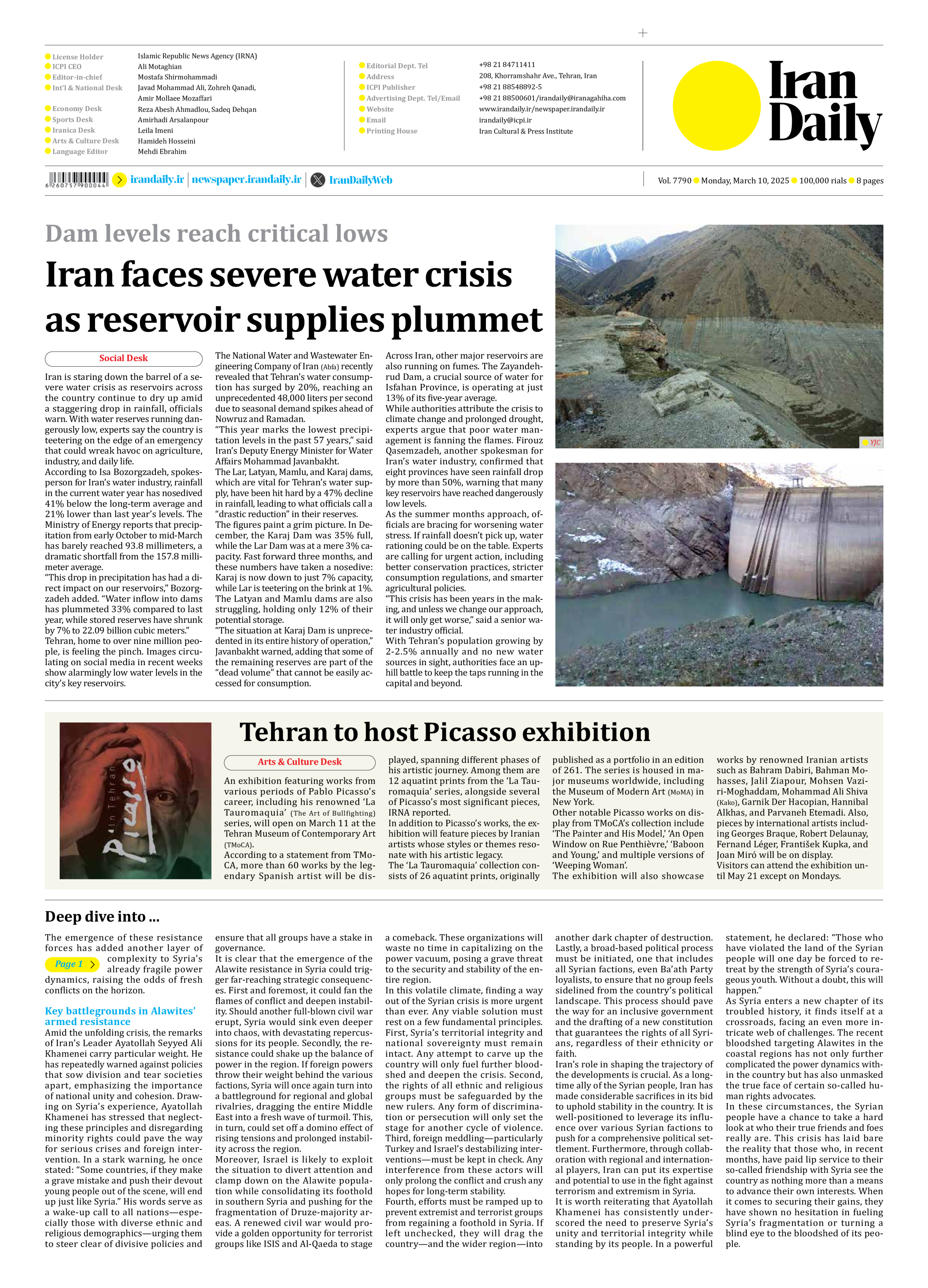
Deep dive into ...
Page 1
The emergence of these resistance forces has added another layer of complexity to Syria’s already fragile power dynamics, raising the odds of fresh conflicts on the horizon.
Key battlegrounds in Alawites’ armed resistance
Amid the unfolding crisis, the remarks of Iran’s Leader Ayatollah Seyyed Ali Khamenei carry particular weight. He has repeatedly warned against policies that sow division and tear societies apart, emphasizing the importance of national unity and cohesion. Drawing on Syria’s experience, Ayatollah Khamenei has stressed that neglecting these principles and disregarding minority rights could pave the way for serious crises and foreign intervention. In a stark warning, he once stated: “Some countries, if they make a grave mistake and push their devout young people out of the scene, will end up just like Syria.” His words serve as a wake-up call to all nations—especially those with diverse ethnic and religious demographics—urging them to steer clear of divisive policies and ensure that all groups have a stake in governance.
It is clear that the emergence of the Alawite resistance in Syria could trigger far-reaching strategic consequences. First and foremost, it could fan the flames of conflict and deepen instability. Should another full-blown civil war erupt, Syria would sink even deeper into chaos, with devastating repercussions for its people. Secondly, the resistance could shake up the balance of power in the region. If foreign powers throw their weight behind the various factions, Syria will once again turn into a battleground for regional and global rivalries, dragging the entire Middle East into a fresh wave of turmoil. This, in turn, could set off a domino effect of rising tensions and prolonged instability across the region.
Moreover, Israel is likely to exploit the situation to divert attention and clamp down on the Alawite population while consolidating its foothold in southern Syria and pushing for the fragmentation of Druze-majority areas. A renewed civil war would provide a golden opportunity for terrorist groups like ISIS and Al-Qaeda to stage a comeback. These organizations will waste no time in capitalizing on the power vacuum, posing a grave threat to the security and stability of the entire region.
In this volatile climate, finding a way out of the Syrian crisis is more urgent than ever. Any viable solution must rest on a few fundamental principles. First, Syria’s territorial integrity and national sovereignty must remain intact. Any attempt to carve up the country will only fuel further bloodshed and deepen the crisis. Second, the rights of all ethnic and religious groups must be safeguarded by the new rulers. Any form of discrimination or persecution will only set the stage for another cycle of violence. Third, foreign meddling—particularly Turkey and Israel’s destabilizing interventions—must be kept in check. Any interference from these actors will only prolong the conflict and crush any hopes for long-term stability.
Fourth, efforts must be ramped up to prevent extremist and terrorist groups from regaining a foothold in Syria. If left unchecked, they will drag the country—and the wider region—into another dark chapter of destruction. Lastly, a broad-based political process must be initiated, one that includes all Syrian factions, even Ba’ath Party loyalists, to ensure that no group feels sidelined from the country’s political landscape. This process should pave the way for an inclusive government and the drafting of a new constitution that guarantees the rights of all Syrians, regardless of their ethnicity or faith.
Iran’s role in shaping the trajectory of the developments is crucial. As a long-time ally of the Syrian people, Iran has made considerable sacrifices in its bid to uphold stability in the country. It is well-positioned to leverage its influence over various Syrian factions to push for a comprehensive political settlement. Furthermore, through collaboration with regional and international players, Iran can put its expertise and potential to use in the fight against terrorism and extremism in Syria.
It is worth reiterating that Ayatollah Khamenei has consistently underscored the need to preserve Syria’s unity and territorial integrity while standing by its people. In a powerful statement, he declared: “Those who have violated the land of the Syrian people will one day be forced to retreat by the strength of Syria’s courageous youth. Without a doubt, this will happen.”
As Syria enters a new chapter of its troubled history, it finds itself at a crossroads, facing an even more intricate web of challenges. The recent bloodshed targeting Alawites in the coastal regions has not only further complicated the power dynamics within the country but has also unmasked the true face of certain so-called human rights advocates.
In these circumstances, the Syrian people have a chance to take a hard look at who their true friends and foes really are. This crisis has laid bare the reality that those who, in recent months, have paid lip service to their so-called friendship with Syria see the country as nothing more than a means to advance their own interests. When it comes to securing their gains, they have shown no hesitation in fueling Syria’s fragmentation or turning a blind eye to the bloodshed of its people.







